Romeros Legacy
Romeros Legacy
The Call to Peace and Justice
Pilar Hogan Closkey and
John P. Hogan

A SHEED & WARD BOOK
ROWMAN & LITTLEFIELD PUBLISHERS, INC.
Published in the United States of America
by Rowman & Littlefield Publishers, Inc.
A wholly owned subsidiary of The Rowman & Littlefield Publishing Group, Inc.
4501 Forbes Boulevard, Suite 200, Lanham, Maryland 20706
www.rowmanlittlefield.com
Estover Road
Plymouth PL6 7PY
United Kingdom
Copyright 2007 by Rowman & Littlefield Publishers, Inc.
A revision of in Notre Dame Magazine, October 2004.
All rights reserved. No part of this publication may be reproduced, stored in a retrieval system, or transmitted in any form or by any means, electronic, mechanical, photocopying, recording, or otherwise, without the prior permission of the publisher.
British Library Cataloguing in Publication Information Available
Library of Congress Cataloging-in-Publication Data
Romeros legacy : the call to peace and justice / [edited by] Pilar Hogan Closkey
and John P. Hogan.
p. cm.
Includes index.
ISBN-13: 978-0-7425-4821-3 (cloth : alk. paper)
ISBN-10: 0-7425-4821-X (cloth : alk. paper)
ISBN-13: 978-0-7425-4822-0 (pbk. : alk. paper)
ISBN-10: 0-7425-4822-8 (pbk. : alk. paper)
1. Liberation theology. 2. Church work with the poor. 3. PovertyReligious
aspectsChristianity. 4. Romero, Oscar A. (Oscar Arnulfo), 19171980.
I. Hogan, John P. II. Hogan Closkey, Pilar.
BT83.57.R66 2007
261.8dc22
2007014078
Printed in the United States of America
 The paper used in this publication meets the minimum requirements of American National Standard for Information SciencesPermanence of Paper for Printed Library Materials, ANSI/NISO Z39.48-1992.
The paper used in this publication meets the minimum requirements of American National Standard for Information SciencesPermanence of Paper for Printed Library Materials, ANSI/NISO Z39.48-1992.
To Msgr. Bob McDermott
and to all the priests, ministers, sisters,
and members of various faith communities
who refuse to give up on Camden
Contents
Bishop Joseph A. Galante
Pilar Hogan Closkey and John P. Hogan
Robert T. McDermott
John P. Hogan
Thomas J. Gumbleton
Gustavo Gutirrez
Helen Prejean
Diana L. Hayes
Daniel G. Groody
Foreword
A bishop will die, but the church of Godthe peoplewill never die.
Archbishop Romero
This volume takes us on a journey of justice, peace, and faith guided by Archbishop Oscar Romero. Each year around the anniversary of his death, March 24, 1980, hundreds of people from around the countrystudents, lay leaders, pastoral workers, religious educators, teachers, sisters, brothers, and priestsdescend on Camden, New Jersey, to attend and participate in the Romero Lecture. This series brings leading theologians and pastoral practitioners to our city to help us read some of the the signs of our timesboth local and global. The speakers raise issues that cry out for reflection and action: poverty and the growing gap between the rich and poor; war and the growing gaps between nations, cultures, and religions; urban problems; capital punishment; racial discrimination; and immigration.
The last few years have been troubled times for our church and our nation, but as the chapters that follow indicate, it is often in troubled times that we find our strength and our true selves. This truth was vividly portrayed for us in Oscar Romeros living out the paschal mystery of Jesus.
The death of Archbishop Romero is an image that is engraved on the consciousness of many of us, certainly so on mine. The bishop is celebrating the Eucharist at the altar in a simple hospital chapel. He finishes a short homily remembering the dead mother of a friend. Suddenly, a shot rings out; he falls to the floor bleeding profusely. The Eucharistic image is clearRomeros blood is mixed with that of Christ. That image has become an icon for Christians everywhere. The manner of his death and his martyrdom for the poor and vulnerable remind us of something too often forgotten: Romeros solidarity with the suffering poor of his country grows from and is manifested and celebrated in the churchs liturgy.
This relationship of the churchs worship to charity and justice is brought out in the chapters that make up this book. In the Eucharist, we can recognize the other, however different he or she may be from us, and we are called to reach out to him or her. Christ is present in the poor, the homeless, the immigrant, the enemy soldier, and the person on death row. I realize from my own background and experience how hard that statement might be for us to accept, but the Eucharist is a call to make us try. Romero reminds us,
The Eucharist makes us look back to Calvary twenty centuries ago and beyond that to Moses and the old covenant, an incomparable horizon of history. But it also looks ahead to the future, to the eternal, eschatological, and definitive horizon that presents itself as a demanding ideal. (June 17, 1979)
The issues raised in this volume force us to reexamine what American Catholics might mean by the option for the poor. As Archbishop Romeros life and death show, to really opt for the poor, with all the meaning that the phrase implies, is no easy task. It will take effort and commitmentboth personal and institutionaland it will put us at risk. Nonetheless, more and more, I have come to believe that this might be the price of calling ourselves Catholic Christians.
Without reducing the importance of any of the issues raised here, I would like to make a brief comment on two of them: the plight of our cities and the current debate surrounding immigration. Our urban centers and the people who live in them, especially, the working poor, need our support and assistance. We need healthy and safe cities. No matter where we live, we all depend on urban centers. We need federal, state, urban, and suburban governments, community organizations, civil society, and businesses to pull together to forge fair and equitable regional planning, tax structures, and governance policies.
As for the hot-button questions surrounding immigration, I would simply make a plea for calm and honest discernment. We are a church of immigrants; many of our parents, grandparents, and great-grandparents got off boats from Ireland, Italy, Germany, and Poland. We have been rightly proud of our diverse cultural heritage. Today, again, we are a church of immigrants. We should not be seduced by the partisan arguments about legal versus illegal immigrants. The new immigrants struggle, as did our ancestors, to provide a better life for their families. We need a new approach to immigration policy that is just, fair, and equitable.
However, I am distressed by what I see happening. People who make great sacrifice for their families and contribute to our countrys workforce are too often depicted as undesirables, even criminals. This takes away their human dignity. It pains me to see the offspring of European immigrants pushing to pass laws that discriminate against immigrants from Mexico and Central America. Such a stance flies in the face of who we are as a people. Scripture reminds us, When an alien resides with you in your land, do not molest them.... Have the same love for them as for yourselves; for you too were once aliens in the land of Egypt. I, the Lord, am your God (Leviticus 19:33-34). Latinos carry in their bloodlines and culture a deep sense of the gospel, family, and community. These traits are much needed today by our families, church, and nation. These are our people, indeed; they are us. Again, the Eucharist summons us to responsibility.
Next page

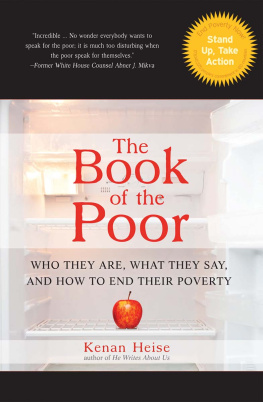
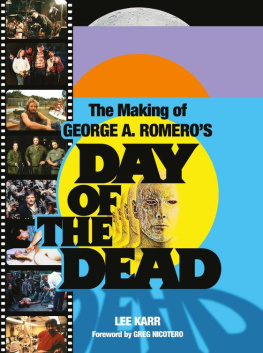
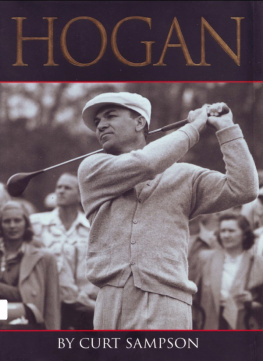
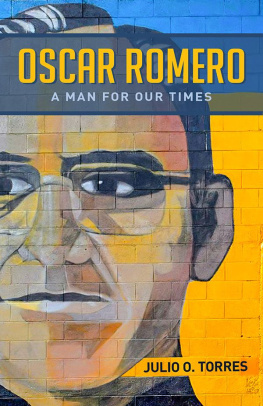
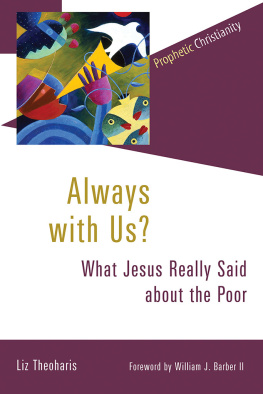
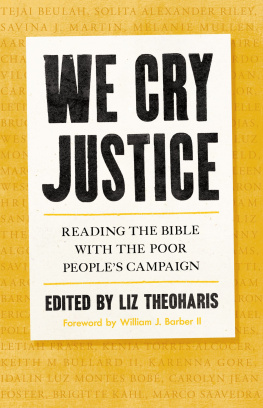
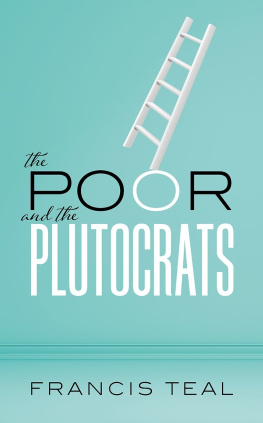
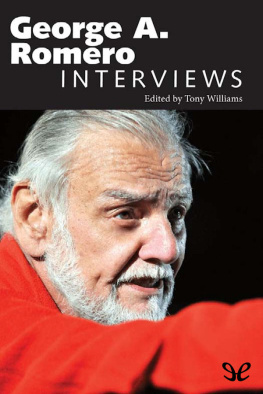
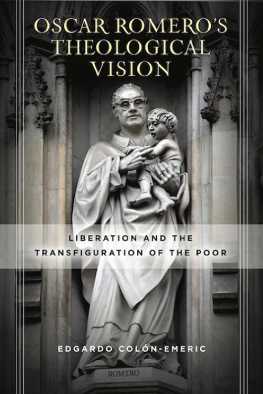

 The paper used in this publication meets the minimum requirements of American National Standard for Information SciencesPermanence of Paper for Printed Library Materials, ANSI/NISO Z39.48-1992.
The paper used in this publication meets the minimum requirements of American National Standard for Information SciencesPermanence of Paper for Printed Library Materials, ANSI/NISO Z39.48-1992.